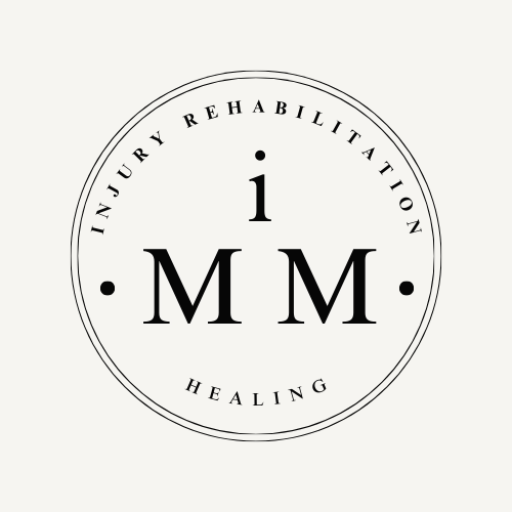Welcome to iMassageMed

Medical Massage Therapy
When it comes to rest and relaxation, there’s nothing better than a massage. Millions of Americans benefit from massages and it’s easy to see why! Massages are great at reducing stress and tension, improving range of motion, and even preventing more serious medical conditions.
Medical Massage Therapy is performed as part of a healthcare provider’s overall treatment plan, so the massage therapy is typically concentrated on a specific medical diagnosis. The exact techniques and procedures that are used during this type of massage will vary from each patient. However, the massage will typically be centralized on the parts of the body that have been identified as an area of concern. Instead of massaging the entire body, medical massage therapy tends to focus on a particular area.
Can a massage be covered by HSA/FSA account? – Yes, your massage therapy can be covered by HSA/FSA account but it must be for a specific diagnosed condition requiring a doctor’s Letter of Medical Necessity (LMN). See more info in Packages.
But what is medical massage therapy and what conditions can it help?
What is Medical Massage?
Medical massage therapy is a specialized form of massage that is focused on addressing specific medical conditions or concerns. It is often prescribed by a healthcare provider as part of a comprehensive treatment plan. Medical massage therapists undergo additional training beyond general massage therapy to understand the anatomy, physiology, and pathologies associated with various medical conditions.
Key features of medical massage therapy include:
- Prescription and Diagnosis: Medical massage is typically prescribed by a healthcare professional, such as a physician or physical therapist, based on a specific diagnosis or medical condition. The therapist works in conjunction with the healthcare team to address the patient’s needs.
- Treatment Goals: The primary goal of medical massage is to alleviate symptoms associated with a medical condition, improve mobility, and enhance overall well-being. This could involve reducing pain, increasing circulation, improving flexibility, and promoting faster recovery from injuries or surgeries.
- Evidence-Based Techniques: Medical massage therapists use techniques supported by scientific evidence and tailored to the individual’s condition. These may include deep tissue massage, myofascial release, trigger point therapy, and other specialized modalities.
- Collaboration with Healthcare Professionals: Medical massage therapists often collaborate with other healthcare professionals to ensure a comprehensive approach to patient care. This may involve communication with physicians, physical therapists, chiropractors, and other members of the healthcare team.
- Documentation: In medical massage, there is a strong emphasis on documenting treatment progress and outcomes. This documentation may be shared with the referring healthcare provider to inform ongoing care.
- Patient Education: Medical massage therapists often educate patients about their conditions and provide guidance on self-care techniques that can complement the in-office treatments. This empowerment helps patients take an active role in their recovery.
Conditions that may benefit from medical massage therapy include chronic pain conditions, musculoskeletal injuries, post-surgical rehabilitation, neurological disorders, and stress-related conditions. It’s important to note that the effectiveness of medical massage can vary depending on the individual and the specific condition being treated. Always consult with a healthcare professional to determine if medical massage is appropriate for your specific situation.
The Benefits of Medical Massage
Medical massage therapy offers a range of potential benefits, especially when integrated into a comprehensive healthcare plan. Some of the key advantages include:
- Pain Relief: Medical massage can be effective in reducing pain associated with various conditions, including musculoskeletal injuries, chronic pain syndromes, and post-surgical discomfort. The targeted application of massage techniques helps alleviate tension, promote blood flow, and release endorphins, which are natural painkillers.
- Improved Range of Motion: For individuals with limited mobility due to injuries, surgeries, or chronic conditions, medical massage can contribute to increased flexibility and improved range of motion. Techniques such as stretching, myofascial release, and joint mobilization can be employed to enhance joint function.
- Enhanced Circulation: Massage therapy can improve blood circulation and lymphatic flow. This can contribute to better oxygenation of tissues, removal of metabolic waste products, and overall improved cellular function.
- Reduced Muscle Tension and Spasms: Medical massage helps release muscle tension and reduce spasms. This is particularly beneficial for individuals with conditions like tension headaches, muscle strains, and chronic pain disorders.
- Stress Reduction and Relaxation: While medical massage focuses on specific therapeutic goals, it also promotes relaxation and reduces stress. This can have positive effects on the nervous system, leading to a sense of calm and well-being.
- Support for Rehabilitation: Medical massage is often integrated into rehabilitation programs following surgeries or injuries. It can aid in the recovery process by promoting tissue healing, reducing scar tissue formation, and preventing the development of secondary issues due to immobility.
- Improved Sleep: The relaxation effects of massage therapy can positively impact sleep quality. Individuals experiencing pain or stress-related sleep disturbances may find relief through regular medical massage sessions.
- Enhanced Mental Health: The mind-body connection is an integral aspect of medical massage. The therapeutic touch and relaxation associated with massage can contribute to improved mental health, reducing symptoms of anxiety and depression.
- Boosted Immune Function: Some studies suggest that massage therapy may have positive effects on the immune system, potentially increasing the activity of natural killer cells and improving immune function.
- Patient Empowerment: Medical massage often involves patient education and self-care recommendations. Empowering individuals to participate in their own well-being can lead to better long-term outcomes.
It’s important to note that the effectiveness of medical massage can vary depending on the individual’s specific condition and response to treatment. Additionally, it’s crucial to consult with a healthcare professional to ensure that medical massage is appropriate for a particular health situation.
A medical massage treatment has a specific goal in mind: HEALING. Rather than a one-time visit, you will likely have a series of visits that focus on treating a physical medical condition. Your massage sessions might even be uncomfortable or painful, as the goal is to treat an underlying condition and alleviate pain in the long-term, rather than focus on short-term relaxation.
1(561)760-1232 or Book Appointment or email us at info@imassagemed.com to schedule your initial consultation.
